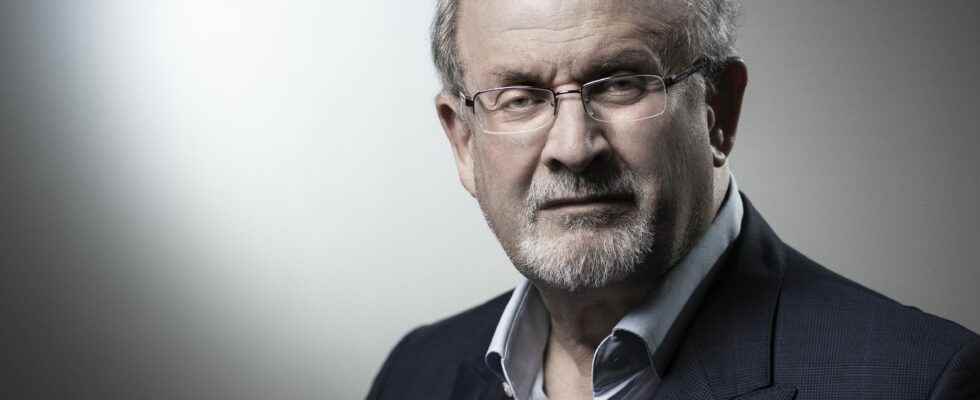He is alive ! damaged but alive! On the occasion of the American release of his new novel, Victory City, Salman Rushdie gave an interview to New Yorker, published on Monday, February 6. We discover a powerful portrait photo, the first image of the master of magic realism after the Islamist attack of which he was the victim on August 12, which cost him an eye and a hand. If Rushdie confesses to suffering from post-traumatic stress which has prevented him from writing since – “I sit at my table, and nothing happens. I write, but it’s a mixture of nullity and nothingness, I write, and the next day I delete everything. I haven’t gotten out of this mess yet, really not” – he kept his sense of humor, posting the day after the article appeared, a daily photo of him, with the comment “the photo in the New Yorker is dramatic and powerful, but here, more prosaically, is what I look like”.
At the same time, images of Iranian resistance fighters reach us – those who demonstrate, refuse the veil and the regulatory dress -, whom the Revolutionary Guards aim in the eyes and genitals. These blind women choose to “decorate” their lost eye with a flower or a heart, and post their photos with a smile on their face. Rushdie’s resistance and that of the Iranians merge in an irrepressible movement for freedom.
There is a strong link between Salman Rushdie and Iran which is not only due to the fatwa issued by Ayatollah Khomeini, on February 14, 1989, against the writer for blasphemy, in order to restore his image, to find a damaged leadership by the Iran-Iraq war, to present itself as the guarantor of the honor of the Arab-Muslim world. Thirty-four years after the fatwa, Rushdie’s literature is the manual for the struggle of Iranians against bearded men and crows. His choice not to sacrifice his literature to the fatwa, not to rewrite The Satanic Verses ad nauseam, to preserve its most precious asset, the imagination, to continue its journey between East and West, to deepen the links between fiction and reality, to celebrate emancipation against obscurantism, resounds like the cry of the Iranians who claim singularity and freedom against Islamic totalitarianism. Literature is a form of humanism, and the Iranians who hide to read novels that have been banned for forty-four years know this better than the American press.
Paradoxically, while few American journalists were ready to defend the writer after the Islamist attack of August 12, the New York Times not having even given an editorial to the event, paralyzed as they were by the fear of contradicting the intolerant, the American press is today dithyrambic about Victory City, presented by its publisher as a novel with the mission of “giving women an equal place in a patriarchal world”. Let’s skip over the purely commercial aspect of such a hook – no writer, director, painter or photographer can hope to exist today without sacrificing the priesthood of the feminine, and let’s look at this strange phenomenon. The American press seems to consider that literature, even that of Rushdie, is more harmless than the Islamist attacks, as if by celebrating the writer they could clear themselves of not having supported the man in his fight for the freedom of expression. Of course, everyone points to the victory of holding this book in their hands, marveling at the similarities between the life of the heroine (a poet endowed with magical powers who erects a perfect city before witnessing its downfall ) and that of the writer, and all take up the last sentence of the novel: “Words are the only victors.”
If I can only rejoice to see the American press remember that Rushdie is an immense writer and that literature is what remains when there are only ruins, I would have liked everyone to benefit from it, to one hand, to refer readers to the masterpiece that are The Satanic Verses, incomparable novel on immigration – where moreover the female characters, as in all the work of Rushdie, are as complex as they are inspiring -, rid of its “polemical” aspect, and, on the other hand, to make its letters of nobility to the freedom of expression and creation, so undermined in the land of cancel culture by the same journalists. That no one makes the link between Rushdie’s limitless freedom and the moral hunt for ill-thinking that affects all Western countries – as evidenced by the delirious “affair” Bastien Vivès – never ceases to surprise and worry me.
